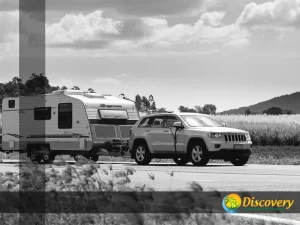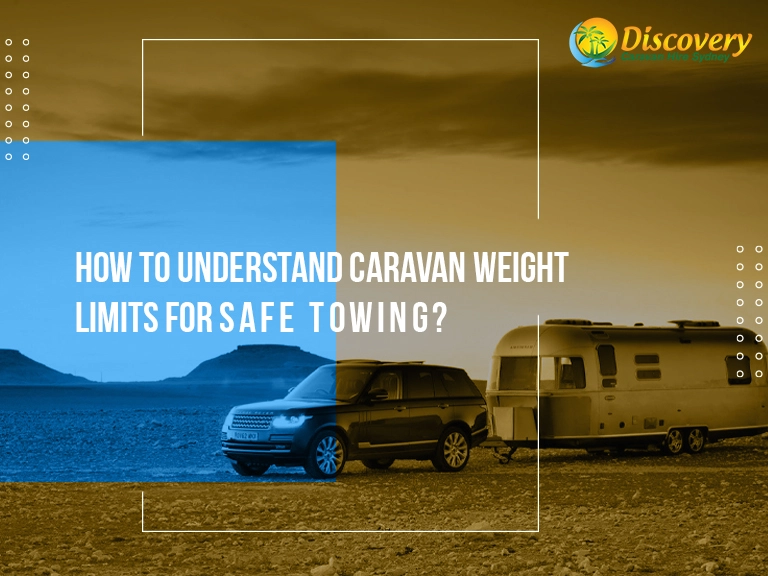How To Understand Caravan Weight Limits For Safe Towing?
You all know how Caravanning has become increasingly popular in recent years right? As people are opting to explore the outdoors while keeping the sense of freedom intact on the road. Towing a caravan is all fun but you must be aware of the challenges associated with it to avoid any kind of inconveniences later. Understanding Caravan Weight Limit is something you must always consider before hitting the road to ensure absolute safety. So to make your vacation a memorable one let’s discuss the importance of knowing your caravan’s weight limits, how to calculate them, and some essential towing safety tips to avoid any kind of mishap.
How Important Is it to Determine Caravan Weight Limits?
By now you have understood why Understanding the weight limits of your caravan is crucial to ensure a safe and comfortable journey. Exceeding these limits for some adventure is never recommended as it can lead to dangerous situations like instability while driving, reduced braking efficiency, and increased risk of accidents. Not only this the slightest negligence can even result in damage to your car and caravan and even lead to potential legal issues and insurance complications.
To avoid this kind of risk, it’s essential that you stay completely aware of your caravan’s weight limits and how they relate to your towing vehicle. The maximum towing capacity and maximum permissible weight of your vehicle should be checked against the weight of your caravan, including any cargo or equipment that you plan to bring along. Exceeding these limits can cause problems, including damage to the caravan’s tires and chassis, reduced fuel efficiency, and increased amount of wear and tear on your vehicle’s engine and transmission. You never want that for your vehicle, do you?
Not only this it can also impact your insurance coverage in case of an accident. Your insurance company will be reluctant to cover any damages caused by overloading, thus draining all your savings for this negligence.
Guide To Opt For The Best Family Caravan That Fits Your Budget
Types of Weight Limits
Having known about the importance of weight limits in your caravan now let’s proceed to the various kinds of weight limits available. There are several weight limits that you need to be aware of like the Gross Vehicle Mass (GVM), Gross Trailer Mass (GTM), Towball Weight, and Aggregate Trailer Mass (ATM). It is strictly advised to not exceed any of these weight limits as it can lead to dangerous situations, including instability while driving reduced braking efficiency, and increased risk of accidents.
So how do you determine the appropriate weight limits for your caravan?
You need to consider several factors. Firstly, you should refer to your vehicle’s owner manual for information on its towing capacity and GVM. Exceeding the GVM can cause significant damage to the vehicle’s suspension, tires, and brakes, leading to unsafe driving conditions.
Secondly, you need to check your caravan’s compliance plate or owner manual for information on its GTM and ATM. The GTM is the maximum weight your caravan can carry, including its contents, while the ATM is the total weight of your caravan, including the tow ball weight and all its contents. Exceeding the GTM or ATM can cause damage to your caravan’s tires and chassis, leading to potential safety hazards.
Lastly, it’s essential to weigh your caravan using a public weighbridge to determine its actual weight, including all its contents. This will give you an accurate idea of how much weight you’re towing and whether you’re within the appropriate weight limits. It’s crucial to ensure that the combined weight of your vehicle, passengers, luggage, and caravan does not exceed the GVM and GTM limits specified by the manufacturers.
Thus by understanding the weight limits involved in towing a caravan, you can ensure a safe and comfortable journey, while also avoiding any kind of potential legal and financial issues.
Top Towing Safety Tips
Having covered caravan weight limits we are now about to share with you some handy tips to keep you safe while you hit the roads. When towing a caravan, safety should always be a top priority. Following these essential towing safety tips can help ensure that you, your passengers, and other road users remain safe while on the road.

- One of the most critical safety tips is to perform regular checks on your towing vehicle and caravan. This includes checking tire pressure, brakes, suspension, and tow hitch connections. Regular checks can help you identify any rising potential issues and prevent them from rising into serious safety hazards. These can keep away inconveniences for later on.
- Distribute weight evenly inside your caravan. This helps to prevent any kind of instability while driving, as it can be dangerous when towing a heavy load. Ensure that you load your caravan with heavier items over the axle and avoid overloading the front or rear.
- Practising safe driving is another critical safety tip when towing a caravan. Ensure to maintain a safe distance from other vehicles and avoid sudden braking or swerving, as this can cause instability and lead to accidents. Also, adjust your driving speed to suit the road conditions, and avoid high speeds out of excitement, especially when driving on winding or hilly roads.
- Lastly, it is important to use appropriate towing aids to enhance your safety on the road. You can use sway control devices, weight distribution hitches, and towing mirrors. These help to reduce sway, improve stability and increase visibility, making your journey safer and more comfortable.
Thus now you know why understanding caravan weight limits and adhering to towing safety practices are crucial to ensuring a safe and enjoyable caravanning experience. By following our tips and performing regular checks, distributing weight evenly, practising safe driving, and using appropriate towing aids to enhance your safety while on the road.
For any more queries regarding caravanning feel free to get in touch with Discovery Caravan Hire Sydney and get it resolved in no time.


Recent Comments